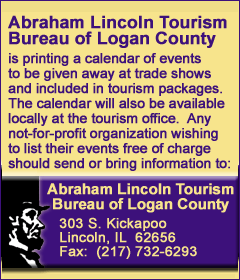|
The result was "The Great Lakes
For-Hire Commercial Manure Applicator Voluntary Certification and
Training Program." In addition to receiving extensive training in
manure application, haulers who complete this program could be
eligible for reductions in liability insurance premiums.
Organizers of the multistate
program believe they will save everyone money by sharing resources
and avoiding duplication of efforts, said Randy Fonner, University
of Illinois Extension specialist. Also, because haulers often work
across state lines, organizers hope to create a certification
process that will be valid from state to state.

The certification program is
being developed in consultation with applicators from all three
pilot states and includes three levels of certification.
Level 1: This level will ensure
that in-field employees have a basic working knowledge of spill
response, application techniques and their state-specific
regulations. Applicators completing Level 1 training with all
employees could receive a reduction in general liability insurance
premiums.
Level 2: This level is geared
to crew supervisors and owners and ensures that they have a
knowledge base necessary to apply manure in an environmentally safe
manner. It requires Level 1 certification and six hours of
continuing education (classroom and in-the-field) every two years,
with a graded exam.
Level 3: This level is
customized to the individual operation. The operator works with an
insurer to create a code of ethics and implement an Emergency
Management System, which provides attainable and measurable
standards for equipment maintenance, safety and environmental
training, and record keeping. Applicators certified at this level
could be eligible for premium reductions on environmental liability
coverage as well as a general liability premium reduction.
Fonner and Ted Funk, a U of I
agricultural engineer, are working with Extension in Wisconsin and
Michigan to develop the curriculum for the pilot program. They are
writing a learning module for Level 2 that focuses on calibration of
equipment and record keeping. Eventually, Extension specialists in
all three pilot states hope to create four to five modules on
related topics.
[to top of second column in
this article]

|

The first learning module was
introduced at the Upper Midwest Manure Handling Expo in Prairie du
Sac, Wis., on Aug. 19 and 20. Organizers of the expo said
participants came from all over the Midwest as well as Canada.
Fonner hopes to have a similar
field day in Illinois in 2004, although on a much smaller scale.
Right now, he estimates that there are between 20 and 25 commercial
haulers in Illinois. But he emphasizes that a program such as this
should not be evaluated on the number of participants alone.

"What you really need to look
at is the number of farms -- or even more specifically, the number
of acres -- impacted by this program. Then its influence becomes
significant."
Fonner also said that, from
some informal discussions he has had, he believes legislators in the
participating states are "pleased as punch" that haulers and
Extension specialists are taking the initiative to provide training
for members of this industry.
"Legislators know that this is
needed, but they don't have the money or the resources," Fonner
noted. "If we can develop a voluntary program that is not just a
rubber stamp but actually has some teeth to it, they're going to
look favorably at it."
That's good news for everyone,
he added. "Every time we turn around, there are more regulations.
And every time we add regulations, costs go up. This program can
provide training and quality control without adding regulations.
That's the goal."
For more information about this
voluntary program, contact Randy Fonner at (217) 333-2611 or
refonner@uiuc.edu.
The
Web address for the Professional Nutrient Applicators Association of
Wisconsin is
http://www.wimanuremgt.org/.
[University
of Illinois news release]

|